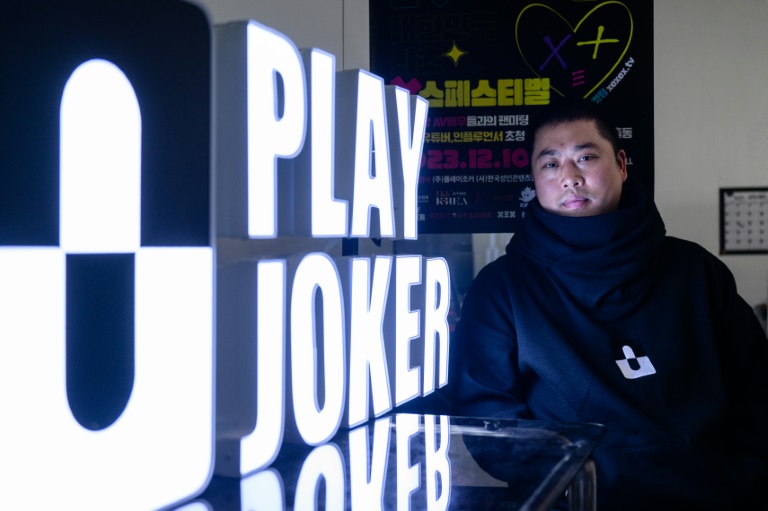When entrepreneur Lee Hee-tae told his parents he wanted to go into the porn industry, they urged him to just think about money, not worry about social condemnation in conservative South Korea.
He said the economic reasons were clear: inherent domestic demand and growing global interest in South Korea due to a surge in K-pop and K-drama exports.
However, South Korea's adult industry is small compared to its neighbour Japan due to highly conservative social mores.
The company produces about 2,000 adult films a year, while Lee's research suggests that the $36.5 billion Tokyo giant produces 2,000 per day.
Lee said it was not just a missed opportunity, but also a personal tragedy for many Koreans, for whom sex, desire and sexuality are too “taboo” to be properly discussed.
“I want Korea to be more open about sex,” said Lee, whose adult content company Play Joker recently pivoted from making films to hosting live events.
While producing pornography is not illegal in South Korea, it is heavily regulated and authorities require that images of genitalia be heavily blurred.
The country is also grappling with an epidemic of “molkas,” or spy cameras, illegally filmed videos of everything from women in public toilets to leaked sex videos of K-pop stars.
Lee argued the two phenomena were related and said allowing the local adult content industry to thrive would help prevent spy camera crimes.
Local women's groups are opposed to this.
“Their claim that a so-called 'free sexual culture' helps prevent the spread of illegal adult content is patently false,” the Suwon Women's Hotline said in a statement last month.
“This is just an attempt to further the culture of sexual violence.”
– Porn for women? –
Lee said some people may “watch Molka because they don't understand adult content” and therefore don't know the difference between professional pornography and illegal footage.
Lee's company has produced about 500 adult films, most of which were shot in Japan using Japanese actors.
While most of them target male audiences, there is a trend across the industry of more companies producing content specifically targeted at women, he said, adding that many Japanese production companies have popular content aimed at women.
“We've observed a surprising trend of a significant increase in viewership between 11 a.m. and 12:30 p.m.” on adult cable TV stations in South Korea, he said, urging the industry to investigate.
“We found that women were watching the shows after they had sent their husbands to work and their children to school,” he said.
But Lee noted that South Korea is plagued by a web of social taboos and regulations that “prevent the industry from realizing its full potential.”
For example, dressing porn actors in school uniforms violates child protection laws, while featuring flight attendant uniforms means producers can “anticipate a serious protest from the flight attendant union.”
“Thanks to K-pop, the Korean national brand has grown and many countries want Korean adult content,” he said, but the existing industry is unable to meet the demand.
– An adult-only festival –
Lee decided to focus on live events as a way to change people's attitudes, but his attempt to organize South Korea's largest sex festival in April faced fierce online criticism and legal challenges.
Women's groups have called the planned festival in the city of Suwon, south of Seoul, a “sexually exploitative event” and condemned it as “quasi-prostitution.”
Suwon city authorities canceled the event after receiving a backlash, and after he found a new venue in the capital, Seoul authorities cut off the electricity and threatened to revoke the venue's license.
As a result, Lee said he was forced to cancel and suffered huge financial losses.
Lee has filed a lawsuit against city officials and women's groups seeking damages. The controversy has led some newly elected council members to question whether authorities were right in cancelling the event.
“What's wrong with holding an adults-only festival?” Jeong Haram, a newly elected opposition lawmaker in April's parliamentary elections, wrote on Facebook.
“The authorities should stay out of this. State powers have no right to interfere in the cultural sphere unless it is clearly illegal.”
Lee said these signs suggest things are changing, at least a little. He's planning an even bigger event in June and said he won't back down this time.
South Korea doesn't need to be so cautious about adult content, he said.
“I want to remind people that we were all created through sex.”
Korean/Chinese/Traditional Chinese/Traditional Chinese


